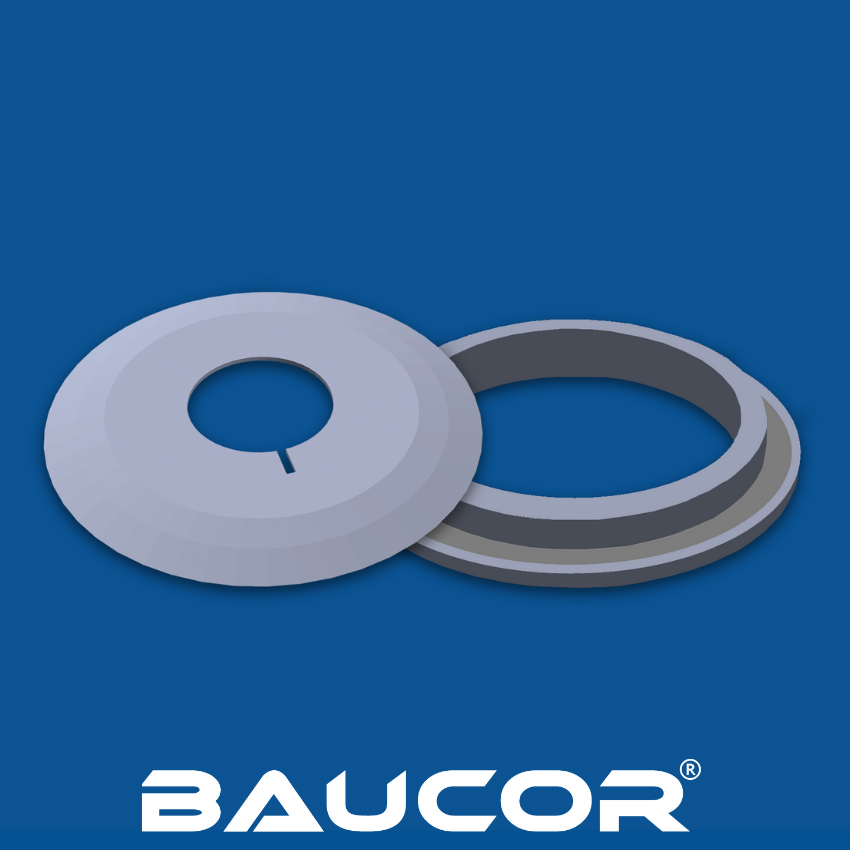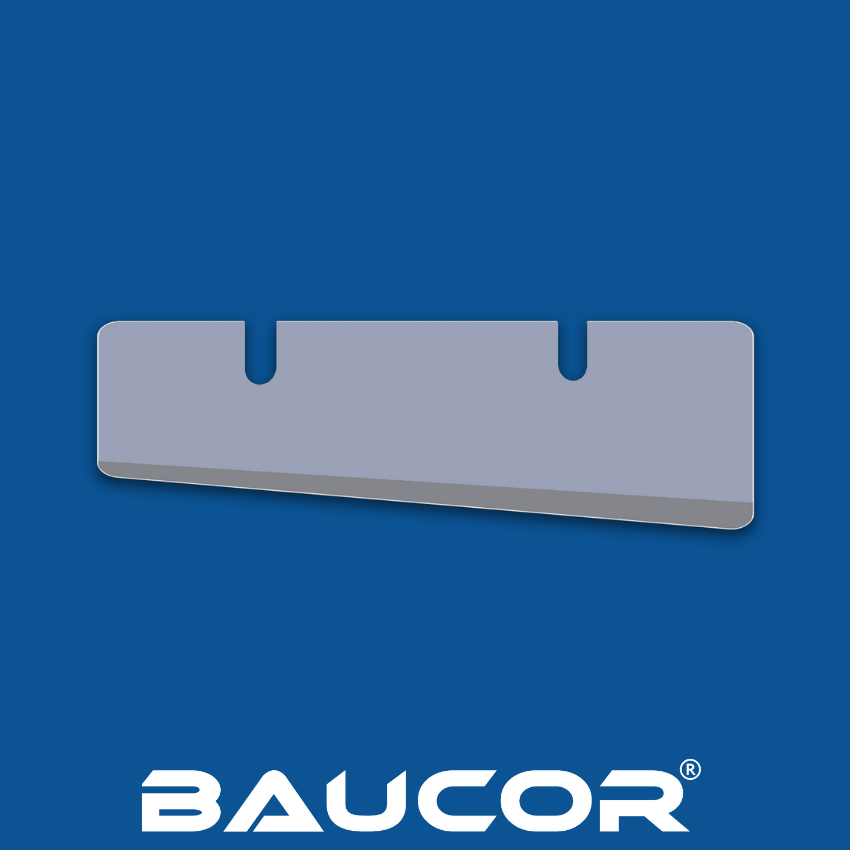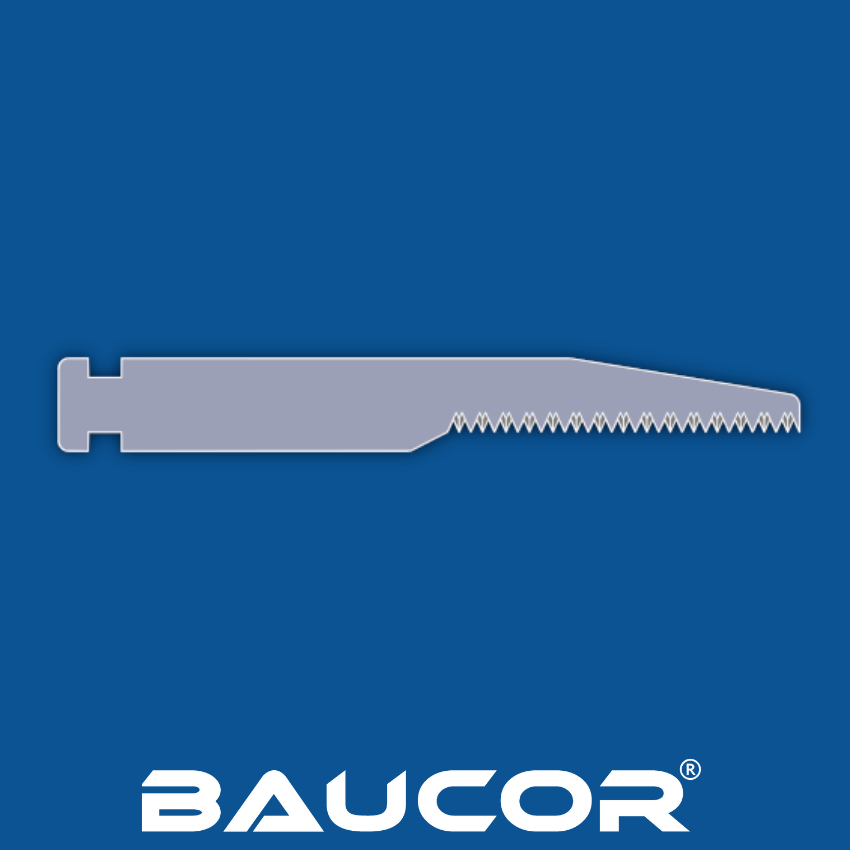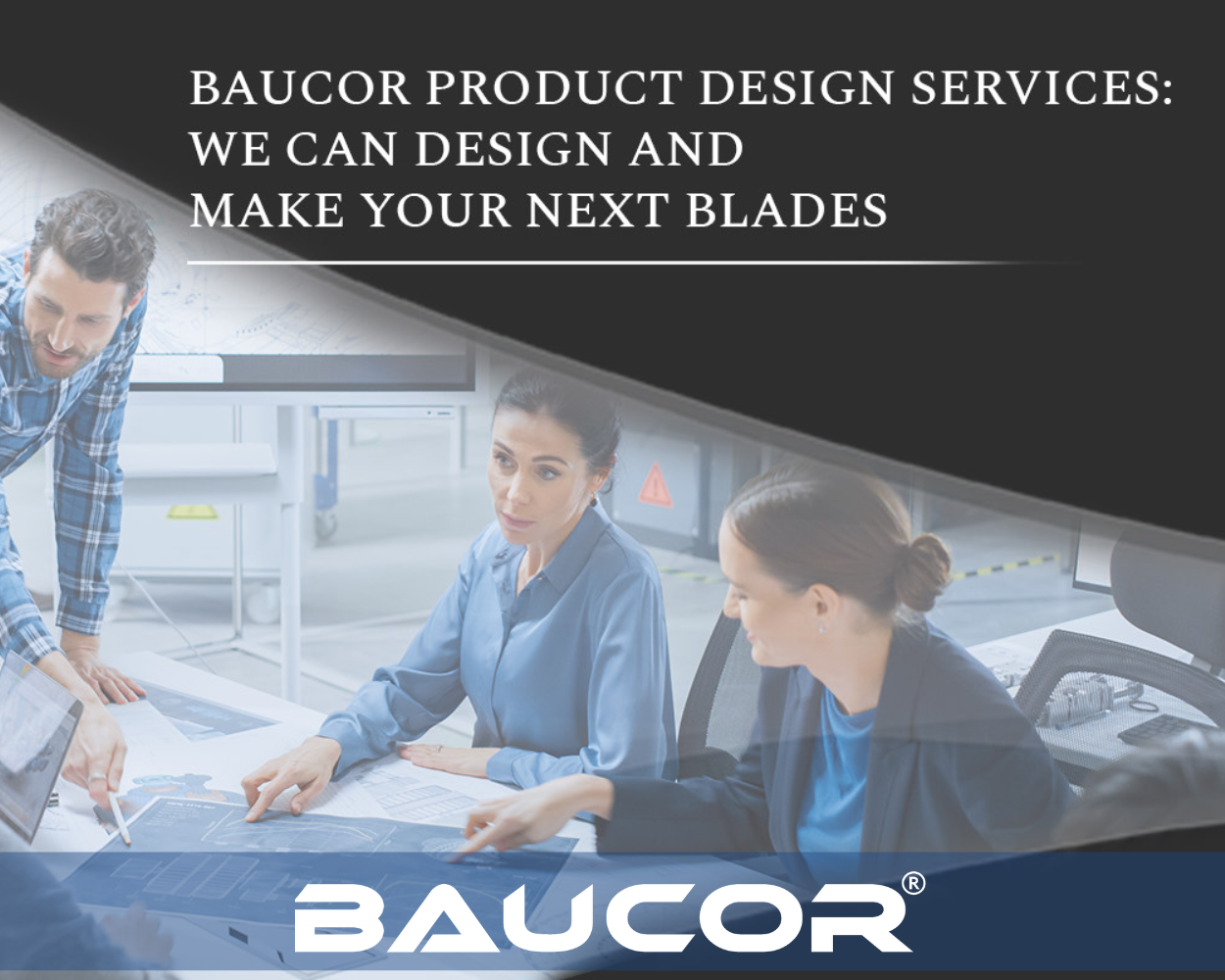Mastery in Precision Production: Triumphing Over Obstacles at Baucor

Precision manufacturing is the backbone of modern industry, driving innovation and pushing the boundaries of what is possible. Baucor, a leading manufacturer specialising in cutting-edge precision tools and industrial blades, is at the forefront of this exciting field.
Production accuracy is essential in today's fast-paced industrial world. As technology advances, there is an increasing demand for smaller, more intricate parts used in various sectors such as aerospace, medical devices, electronics, automotive, and more. Precision manufacturing allows for tighter tolerances and ensures consistent quality throughout production.
In an era where accuracy and efficiency are paramount, Baucor has risen to the challenge, overcoming numerous obstacles to deliver exceptional products that meet even the most demanding requirements.
Here, we will explore the world of precision manufacturing and how Baucor overcomes its unique challenges in delivering exceptional results.
The Evolution of Precision Manufacturing at Baucor
Baucor has helped precision manufacturing evolve since its founding. Precision manufacturing began with painstaking manual methods and expert artisans who precisely crafted each part by hand. Precision manufacturing has changed drastically due to technological advances.
CNC machines revolutionised precision manufacturing. Automated systems improved precision and repeatability, decreasing human error to virtually zero. CAD/CAM software allowed engineers to generate complex designs digitally before making prototypes, simplifying the design process.
Precision manufacturing has also benefited from advances in materials science. From high-performance alloys to sophisticated polymers, manufacturers may now use materials with higher strength, durability, and heat resistance for precise components.
Baucor has pioneered precision manufacturing technology throughout its existence. Their dedication to R&D has led them to use Swiss-type CNC lathes and wire EDM equipment that are precise and efficient.
Baucor also trains employees on industry trends. Baucor stays ahead in providing top-notch solutions for even the most demanding applications by fostering a culture of continual development and embracing new technology.
GET A QUOTE
Challenges in Precision Manufacturing

Technical Challenges
Precision manufacturing is a complex and intricate process involving producing high-quality parts accurately. Nonetheless, many technological obstacles in this sector could impede its development. The choice of materials is one such difficulty. Selecting the appropriate materials for various purposes necessitates in-depth knowledge and experience.
Every material has distinct qualities, and choosing the incorrect one can seriously affect the functionality and longevity of the finished product. Manufacturers have many elements to consider, like strength, resistance to corrosion, thermal conductivity, and more.
Precision manufacturing needs help with design and engineering in addition to material issues. Manufacturing these products requires precise tolerances due to their complicated designs. It calls for sophisticated instruments and machinery that can reliably produce accurate measurements.
Engineers must also find inventive solutions to design issues unique to each part or component. They must guarantee functionality while considering space limitations, weight restrictions, assembling needs, and aesthetics.

Economic Challenges
Precision manufacturing is a highly specialised field that demands constant innovation and cutting-edge technology. But invention also comes at a heavy cost. There are two possible financial obstacles in precise manufacturing.
For manufacturers, the high costs of innovation are a major obstacle. Significant financial resources are needed to educate qualified staff, purchase cutting-edge equipment, and fund R&D.
These costs may severely impact businesses, particularly smaller ones with tighter finances. Companies must carefully plan their investments to guarantee optimum efficiency and return on investment to overcome this obstacle.
Another level of complication to precise production is the presence of price sensitivity and market competitiveness. Manufacturers face severe rivalry from domestic and foreign firms as industries become more interconnected. Given their increased options, customers are becoming more and more price-sensitive.
Precision producers must discover ways to stand out in a crowded market by offering distinctive value propositions or superior-quality products at competitive prices. It calls for thorough market research, tactical alliances with distributors or suppliers, ongoing supply chain optimisation initiatives from product conception to delivery, and successful marketing campaigns.

Environmental and Regulatory Challenges
Compliance with environmental regulations is a significant challenge that precision manufacturing companies like Baucor face. Compliance with tight rules and standards can take time and effort. From emissions control to waste management, firms must comply with many regulations.
Effective waste management is crucial to compliance. Precision production produces lots of metal shavings, trash, and chemicals. Proper disposal, such as Sorting, recycling, or correct disposal, minimises environmental damage, reduces environmental impact, and follows the rules.
Precision producers must also reduce their carbon footprint in today's eco-conscious world. Carbon emissions exacerbate global warming. Baucor must employ sustainable practices that reduce energy use and use eco-friendly technologies.
Manufacturers can reduce their carbon footprint using renewable energy, energy-efficient technology, and optimising production processes. By adopting these techniques, precision manufacturing firms demonstrate their sustainability and lessen their environmental effect.
Precision manufacturing has several environmental and regulatory issues. Sustainable production procedures must be planned and implemented throughout the production process to comply with ecological standards, manage waste, and reduce carbon footprint.
Baucor's Strategies for Overcoming Challenges

A. Innovation and Research
Investing in research and development (R&D) is at the core of Baucor's strategy. By allocating resources towards research and development, they consistently improve their processes and products. By doing this, they may enhance the efficiency and quality of their products and adjust to the ever-changing needs of their customers.
Additionally, Baucor understands the value of working with educational and research institutes. They can obtain state-of-the-art technologies, specialised understanding, and novel insights through collaborations with these establishments. Working together allows you to investigate novel concepts and carry out cooperative initiatives or research that produce creative solutions.
Baucor ensures that fresh insights into precision manufacturing processes always come to light by utilising external cooperation with academic institutions and internal skills through R&D investment. They are consequently able to keep up with the latest developments in the sector.
By employing such proactive tactics, Baucor continuously pushes the envelope in precision manufacturing innovation, overcoming obstacles and positioning itself for future success.

B. Technological Advancements
The precision manufacturing sector has transformed because of technological developments, which have helped businesses like Baucor overcome various obstacles.
Implementing automation and artificial intelligence (AI) is one of their primary strategies. Baucor has improved the productivity, accuracy, and efficiency of its manufacturing processes by integrating sophisticated robots and artificial intelligence technologies.
At Baucor, automation is essential to simplifying processes. Automatic technology performs repetitive tasks quickly and precisely, reducing human error. It lowers expenses while guaranteeing constant quality throughout the production process.
Baucor's novel materials and procedures have helped overcome obstacles. They spend on research and development to find new materials that meet their clients' needs. They also improve or create new methods to maximise manufacturing efficiency without compromising quality.
Baucor can provide outstanding precision products to fulfil customer demands by being on the cutting edge of technical breakthroughs through material innovations, automation, and artificial intelligence integration. With these tactics, they can maintain their competitiveness in a constantly changing market while ensuring that their customers' needs come first for years.

C. Market Strategies
Baucor, a precision manufacturing leader, has overcome several hurdles with strong market tactics. They prioritise niche markets. Baucor has customised its goods and services for precision-cutting tool users by recognising certain businesses and sectors.
Baucor ensures that its clients receive customised solutions with optimum value and performance. This personalised strategy helps them become specialised market specialists, establishing customer loyalty and a competitive edge.
Additionally, Baucor has adopted worldwide expansion and localisation methods. To reach new customers outside their home base, they have expanded abroad. Baucor can better service consumers worldwide by opening local facilities or working with distributors.
This method helps them analyse market needs and tailor their products and services. It also helps them overcome foreign market regulatory and cultural constraints.
Baucor stays ahead of the competition and meets clients' wants by focusing on specific markets and expanding globally and locally. These new methods boost growth and consolidate Baucor's precise manufacturing leadership.
GET A QUOTE
Future Outlook and Emerging Trends in Precision Manufacturing

As technology advances, precision manufacturing will see exciting advances. One forecast for the sector's future is a rise in the application of robots and automation. It will improve accuracy and efficiency while also streamlining production procedures.
Applying artificial intelligence (AI) to precise manufacturing is another new trend. Large-scale data analysis, pattern recognition, and real-time performance optimisation are all possible with AI—the outcomes of better product quality, less waste, and a quicker time to market.
Leading the way in precise manufacturing, Baucor is influencing market developments and trends. The business understands that it needs to continuously adapt and invest in cutting-edge technologies to stay ahead of the competition.
To maintain its position as a leader in innovation, Baucor makes significant investments in R&D. To continuously push limits and create new solutions that address changing consumer needs, Baucor strives to cultivate a culture of curiosity and discovery within its workforce.
Baucor actively engages with academic institutions and research organisations in addition to its internal R&D initiatives. Through these relationships, they can use cutting-edge facilities for testing new concepts and gain access to outside knowledge.
By utilising these tactics, Baucor establishes itself as a pioneer in the field, propelling advancements in precise manufacturing. We may anticipate remarkable discoveries from Baucor that will influence the course of this rapidly changing sector as they collaborate and invest in R&D projects.
Conclusion
Baucor's navigation through the challenges of precision manufacturing is a testament to its unwavering commitment to innovation, resilience, and strategic vision. By embracing technological advancements, fostering a culture of continuous improvement, and prioritising a customer-centric approach, Baucor has overcome hurdles and set a noteworthy standard for the manufacturing sector.
As an inspirational model, Baucor imparts crucial lessons about the significance of adapting to change, investing in a skilled workforce, and maintaining a relentless pursuit of excellence. Its success resonates as a beacon for the industry, illustrating that in the dynamic landscape of precision manufacturing, embracing transformation and prioritising customer satisfaction can pave the way for sustained and commendable achievements.


 English
English